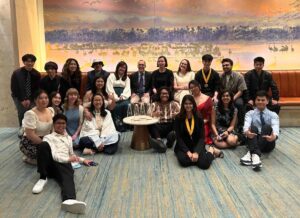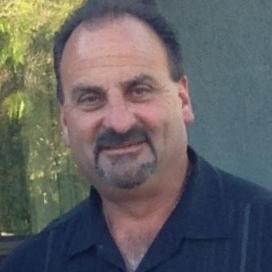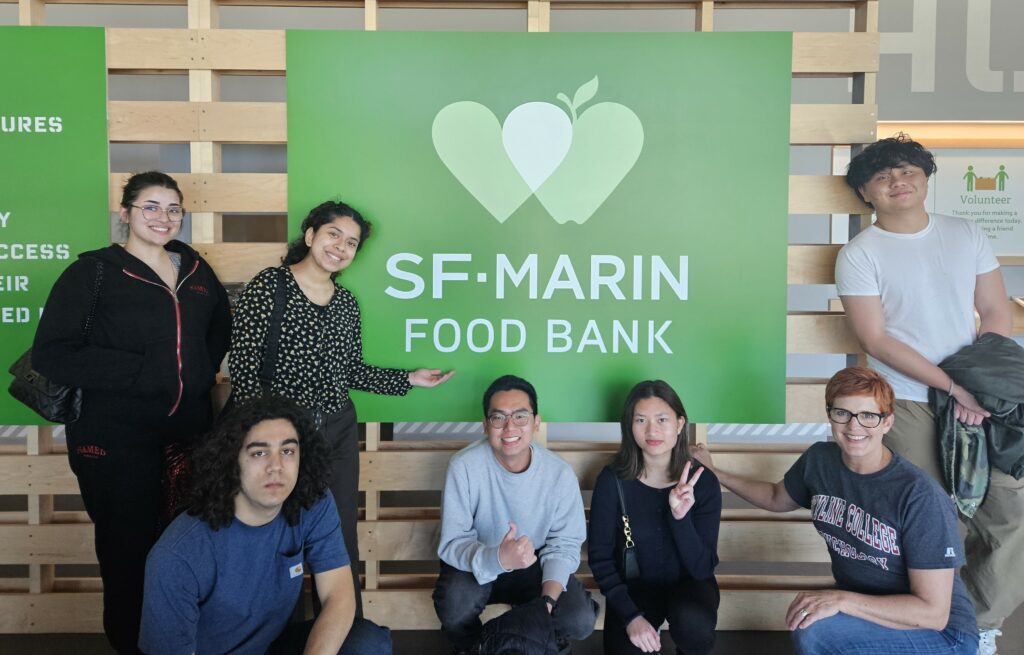 On May 11, 2022, Skyline College student Tara Grover facilitated a virtual, student focused event, “How Do We Trust the Media?,” to help her peers better understand how fake news is generated and raise awareness of the many techniques for confronting it. She graciously introduced her panel of “brilliant minds,” Skyline College faculty from across the disciplines: Andrea Fuentes, Pia Walawalkar, Rachel Cunningham, Nancy Kaplan-Biegel, and Suzanne Schubert.
On May 11, 2022, Skyline College student Tara Grover facilitated a virtual, student focused event, “How Do We Trust the Media?,” to help her peers better understand how fake news is generated and raise awareness of the many techniques for confronting it. She graciously introduced her panel of “brilliant minds,” Skyline College faculty from across the disciplines: Andrea Fuentes, Pia Walawalkar, Rachel Cunningham, Nancy Kaplan-Biegel, and Suzanne Schubert.
Participants began by viewing a video clip of the actor Tom Cruise – who turned out not actually to be Tom Cruise. Prof. Cunningham asked, “What happens when we take social media posts at face value?” Prof. Karen Wong responded, “What if they put somebody’s words in the mouth of a very prominent figure like our president? …. It could be…really insulting to another head of state…and that might cause some real diplomatic tension in the future.”
Throughout the session, discussions were illuminated by clips from the documentary film, How Do We Trust the Media, which participants were encouraged to watch before the session (also available for the Skyline community here, please use your OneLogin credentials for access). Many students participated by responding to questions by chat.
Tara explained how media literacy tools, guidelines, and questions we ask ourselves can give us the confidence to know whether the information we are learning is true. She pointed out that we need these for the same reasons Malcolm X is said to have explained about 50 years earlier: “The media’s the most powerful entity on earth. They have the power to make the innocent guilty and to make the guilty innocent. Media has the power to influence minds, ideas, behaviors, and attitudes of the masses.”
Participants evaluated several social media examples and learned how new technologies not only confirm our existing biases but also take advantage of our psychological vulnerabilities. One example has been tweets created by Russian bots mimicking real people but using fake accounts, which the New York Times identified as part of a disinformation scheme by the Russian Internet Research Agency which used social media to instigate violence in Texas.
“It’s not just the media — we as real people amplify misinformation, too,” Prof. Walawalkar explained further. “We have to question everything that’s coming our way” especially before we reshare it. She and journalism Prof. Kaplan-Beigel encouraged students to use lateral searching techniques, a method for finding out what other groups and professional journalists are writing about a particular story. They also urged students to probe deeper to learn who, for example, is funding the organization that has published or posted a story, since groups appearing to be grassroots organizations may actually be industry members in disguise.
Prof. Walawalkar explained, “We have a right to all of this information but with rights come responsibilities.” By reposting we have essentially agreed that certain information is true. Additionally, in thinking about the authority of who is writing or sharing information, “just because somebody has a doctorate doesn’t mean they can’t be bought…it’s complicated.” She continued, “it’s not about becoming cynical or not believing anything, just having a healthy skepticism, asking a lot of questions before believing or not believing something.” She shared her library research guide, designed to help students do this for themselves: Evaluating Fake News and Beyond.
Faculty and students shared other techniques for confirming whether information is true, including asking themselves if an article or post makes them emotional and then searching for other sides of the story, and using Snopes, a fact checking website that gives the details and history of specific fake stories and posts. Prof. Schubert closed the event by asking students to share something that they had learned during the session or could share that hadn’t yet been discussed.
Lastly, this insightful session would not have been possible without the leadership and vision of Tara Grover. We have no doubt her inquiring mind and stellar organization skills will serve her well as she transfers to UC Santa Barbara and beyond. Congratulations, Tara!
Article by Jessica Silver-Sharp






